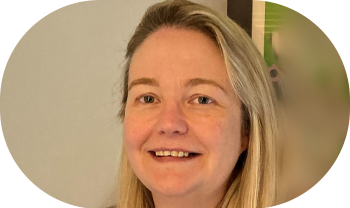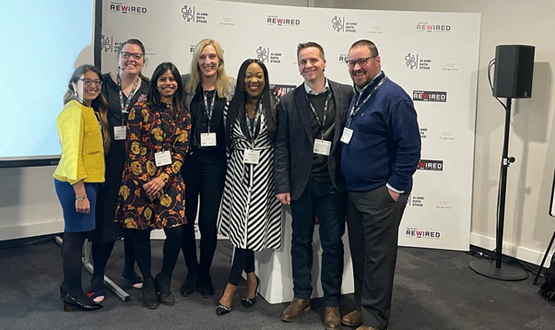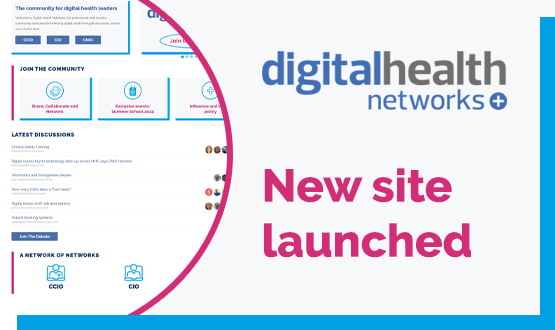 It’s hard not to notice the emergence and flurry of job titles (CCIO, CNIO, CAHPIO, CPIO, CMIO, CXIO, CDIO, CIO, CSIO and CHCIO) under the umbrella of data, digital and clinical informatics in the last few years.
It’s hard not to notice the emergence and flurry of job titles (CCIO, CNIO, CAHPIO, CPIO, CMIO, CXIO, CDIO, CIO, CSIO and CHCIO) under the umbrella of data, digital and clinical informatics in the last few years.
While CIO, CNIO and CCIO job titles have been the front runners for a few years in the data, digital and informatics world, the variety of roles is expanding rapidly, and it is vital that we keep up. More importantly we must ensure job titles are a true reflection of the skills, knowledge, expertise and experience required to meet the demands, provision and delivery of health and care required across systems and for the 21st century.
Informaticians often ask for advice on how to further their careers from others in the industry and the myriad of titles no doubt makes this for an interesting conversation.
With the UK looking to have an additional 32000 jobs in informatics, there could be an argument for the necessity of titles.
Is there a right or wrong path? How many more “C” job titles are envisaged over the next 5-10 years?
Where is the evidence to support the accelerated growth?
Is it time to have a joined-up conversation and review on professionalisation of roles?
Tailored job descriptions
Kaur, who is co-vice chair of the CCIO Digital Health Advisory Panel and the only non CCIO and pharmacy representative, points to the fact that midwives and allied health professionals (AHP) are badged under CNIO job adverts, with the advertisement itself often having a heavy focus on nursing with little or no information related to the other groups.
Also, where do pharmacists, pharmacy technicians, biomedical scientists, ODPs and others who fall into a traditional or non-traditional support services category fit? Job descriptions aren’t always tailored to cater for these groups. Where are the career pathways outlined for different staff to successfully obtain digital roles with clear training pathways to achieve their goals and have the required skillset to flourish in their posts?
Kaur is an aspiring CCIO who has been involved in the development of the exemplar CCIO JD by the Faculty of Clinical Informatics published in autumn 2021 and has spoken recently at Digital Health Rewired on the Office of the CCIO panel.
Kaur challenges digital health leaders to dispel the myth that only doctors, and nurses can take CCIO and CNIO roles. We need to champion each other and truly recognise that the voice of data, digital and clinical informatics is fundamental, and these roles can be led by a variety of individuals from different healthcare disciplines. Kaur is an advocate for embedding digital and clinical informatics learning and development from the grass roots at undergraduate level where possible but also not stifling anyone in achieving their dreams to become digital leaders no matter their current career position.
She firmly believes that teams are richer as a multi-disciplinary network and barriers to current success within the data, digital and clinical informatics field includes the ever-growing number of titles, non-inclusive job descriptions and advertisements and disparity of pay. These need to be addressed and society needs to work collaboratively to bring professionals together from clinical, non-clinical, technical, non-technical and operational fields to enable technology to deliver excellent person-centred care.
Time for a review?
It’s a similar picture for Adejolu, a respected Systems leader and National Associate CNIO, who believes it is time to critically review digital and informatics job titles used across the NHS.
She says, she is often inundated with questions from nurses and midwives interested in digital and informatics asking how many digital courses or programmes they need to undergo before becoming a CCIO, CIO, CIM, CAHPIO or CNIO? How long would it take to get there or for those who already have credible systems experience, they worry if their current career portfolio, work history is extensive or sufficient enough to command such a job title like this now and in the future
“The truth is, there is no straight-forward answer, this is often a mixed bag, you have those who have had structured career pathway, building, and developing diverse system-wide competencies and capabilities along the way, those who have worked their way up, those who may have completed a digital programmes or course, in some cases, this may have proved instrumental in paving a way to becoming a CCIO a CIO, those who say “my boss thinks I will be good for this” and those who say they just fell into the role etc,” she says.
Adejolu believes it’s time to push the “pause button” on the creation of any more digital and informatics job titles and move away from what now seems like an elite, exclusive and hierarchy of more digital and informatics job titles which only seems to alienate and diminish real opportunities for experienced and skilled professionals across systems. Our focus must be on broader skills development, transforming the workforce, distributed leadership and partnership working so everyone is fully supported to excel, thrive, succeed, bring their best self, work to high standards to deliver the safest digital/informatics transformation and the best possible and safer care for our patients and the population.
Data, digital assisted technologies and informatics is truly an exciting place to be, she adds, but job titles need an urgent review, a structured, unified core competency framework and leadership that truly inspires and encourages innovation, creativity, skills development, without the added burden, pressure or fixation on obtaining job titles as a replacement for skills, knowledge, experience, of real system change.
“As we transition into the world of Integrated Care Systems, working in partnership with Integrated Care Boards, we need to painstakingly stocktake and baseline what we currently have vs what we need across systems, standardise job titles and job descriptions, establish continuous talent and skills development pipelines, encourage diverse talents across systems, increase workplace jobs and opportunities, promote an inclusive and broader learning and development portfolio for ALL clinical professions and champion a culture of innovative geniuses through collaboration, where creativity is the norm and less about job titles,” Adejolu concludes.




 A brand-new bursary programme for the 2022 Summer Schools has been launched with the aim of supporting future digital leaders.
A brand-new bursary programme for the 2022 Summer Schools has been launched with the aim of supporting future digital leaders.
